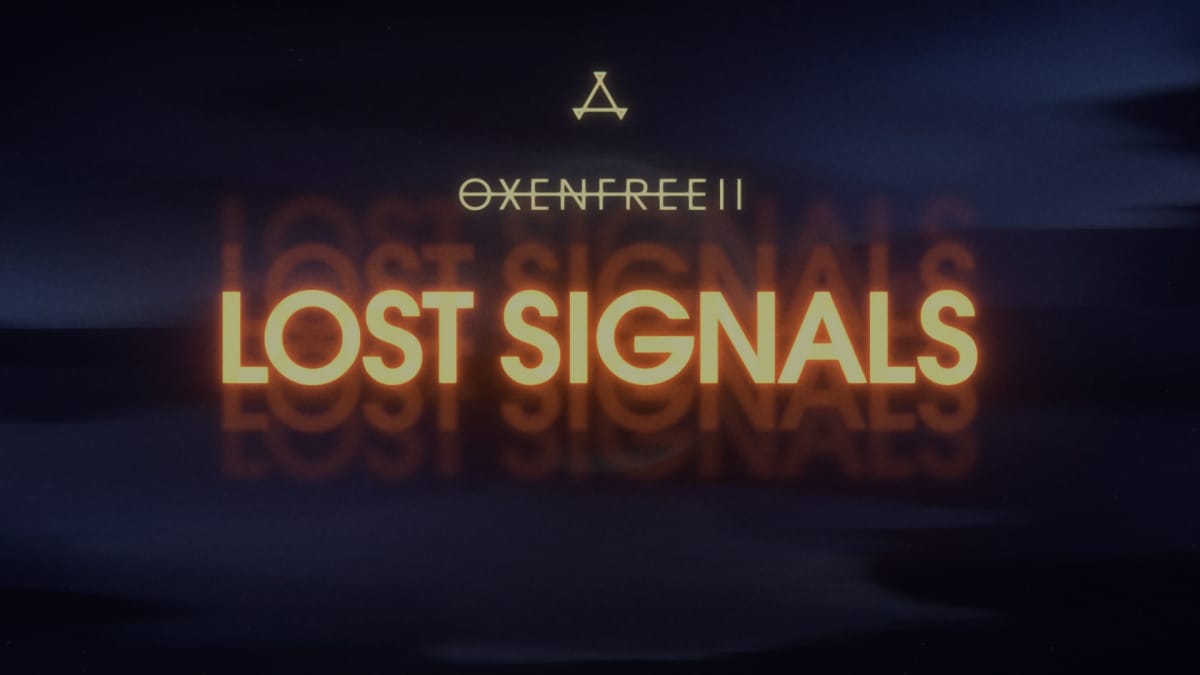With the advent of TV and the Internet, most people don’t use the radio anymore. Sure, you might listen to it while commuting, and some people still use walkie-talkies, but the widespread use of radio has been replaced in the last three decades. As the protagonists of the original supernatural thriller Oxenfree would attest, that's probably a good thing. Fortunately for us, there are still enough radios being used to warrant a sequel in Oxenfree II: Lost Signals.
Oxenfree II: Lost Signals picks up five years after the events of the first game, with an entirely new protagonist. We play as Riley, a thirty-something who has only recently come back into town to take care of her ailing father. She ends up taking a job placing transmitters to help study bizarre radio waves coming from Edwards Island, the setting of the first game, and that’s where our story starts. Following a busted car, a locked general store, and some vaguely creepy dreams, Riley and her assigned buddy Jacob set out to place the transmitters.
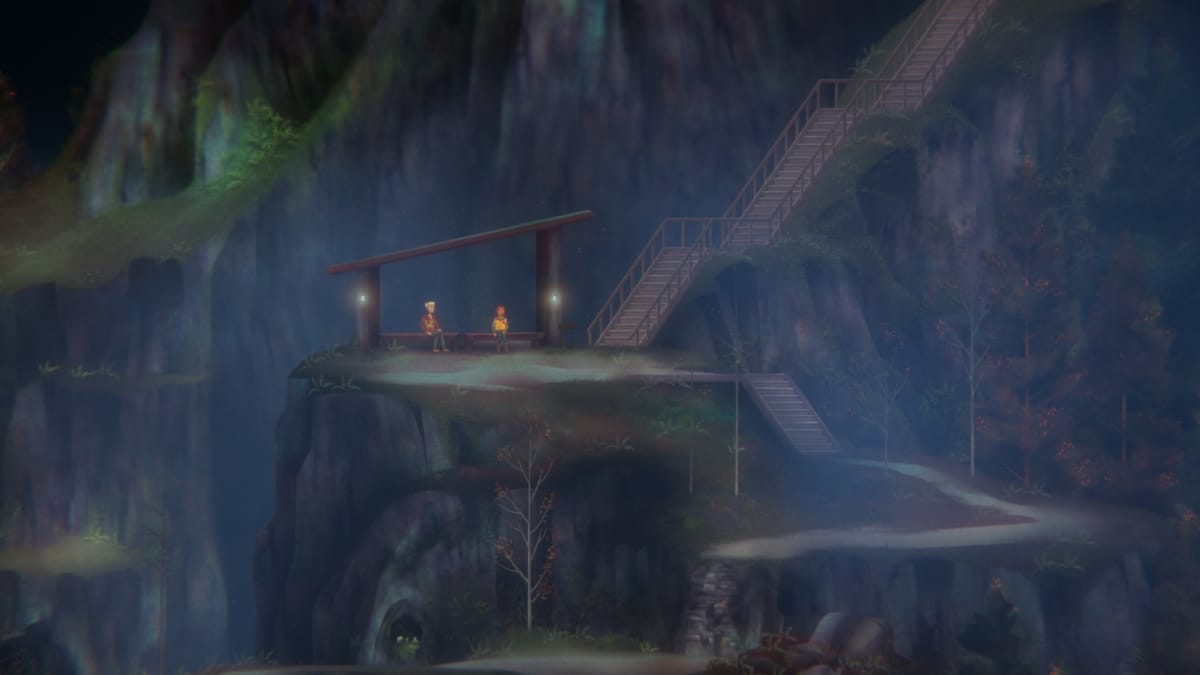
As with the first game, it’s difficult to tell many details of the plot of Oxenfree II without giving away any major spoilers. Once again, supernatural shenanigans abound, and Riley and Jacob work to stop a human cult attempting to re-open the rift above Edwards Island, but their situation becomes more violent and complex than either of them had ever bargained for. Along the way, they both bare their souls to each other, working through a complex range of human emotions, both theirs and those of the other characters they encounter along the way, who can both hurt and help them.
Riley’s specific circumstances in life aren’t widely relatable, but the crossroads that she’s at in her life and her doubts, worries, regrets, and hopes are something that everyone playing will be able to relate to. Like with Alex in the first game, your choices of dialogue change who Riley is. She can be nice and friendly, sarcastic and funny, cruel and mean, or any range in between, as mostly exhibited by her interactions with Jacob and the compassion that she can choose to show or not show other characters.
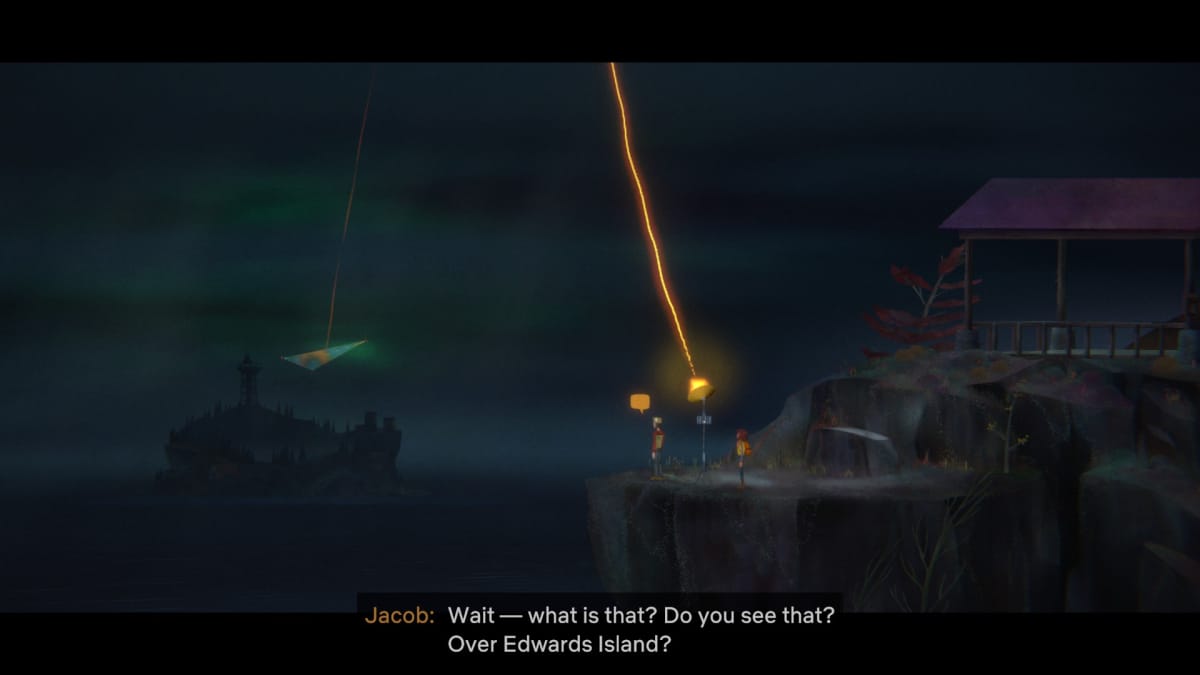
Jacob, the deuteragonist, serves as a great foil for Riley no matter what track you choose to take with her. He’s unsure of his life, having stayed in Camena and never left, but has the best intentions, despite the insane world of chaos that he finds himself thrown into, purely by chance of his proximity to Riley. He’s not a knight in shining armor, nor is he a useless load, he’s just a regular guy trying to cope with the craziness as best he can, while it exposes the cracks in his armor and the flaws in his personality.
Unlike the first game, what makes Oxenfree II really stand apart is how quickly it dives into horror territory right off the bat, making it more of a horror game than just an atmospheric thriller. It’s a great contrast and gives the feeling that the stakes are much higher this time, and the world seems to be that much darker. While I wasn’t expecting this, I grew to like it, after I realized that I needed to play it at night with the lights very much on. There are jumpscares, freakish jump cuts between hallucination, reality, and … something else, and a damn creepy voice on the radio feeding you nursery rhymes at one point while you run around an abandoned beach. It’s not Resident Evil, but it’s not exactly for the faint-hearted.
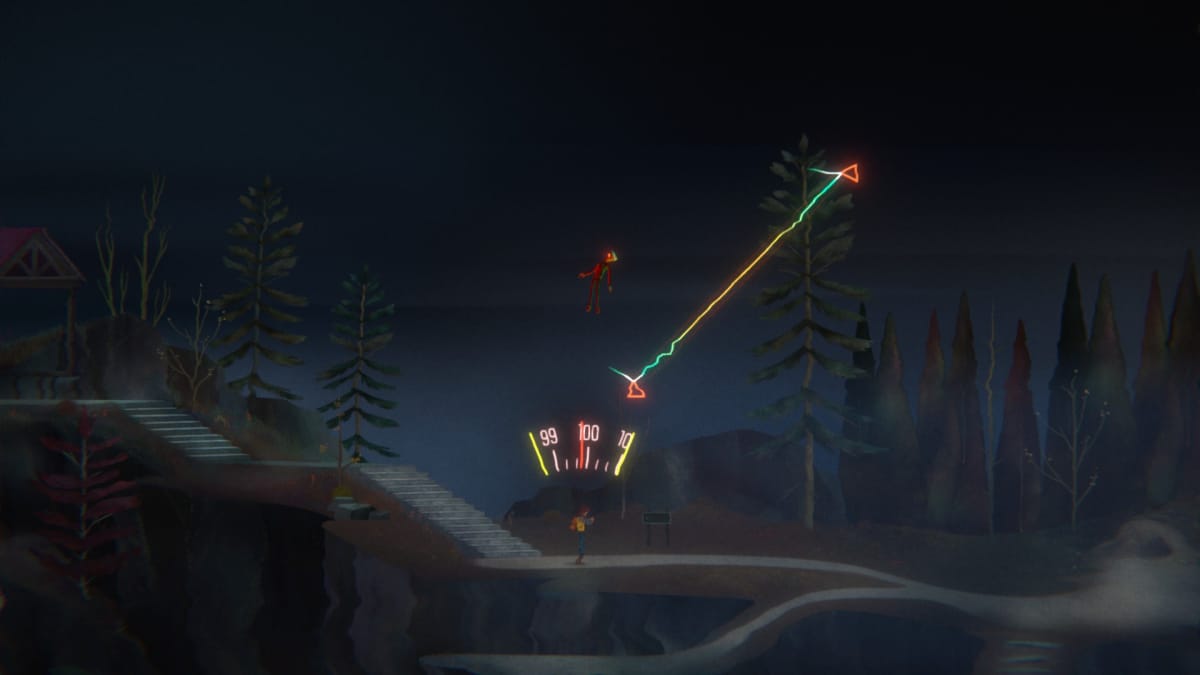
Oxenfree II brings back the real-time dialogue system from the first game, and it’s the majority of the gameplay. Riley and Jacob talk while they run around Camena on their adventure, sharing their souls with each other and occasionally with other characters who they meet or who they interact with on the walkie-talkies. Everyone has a story to tell, and by choosing how Riley interacts with them, you determine everyone’s ultimate fate. The game also uses the dialogue system to jump into moral and philosophical topics, making you think about what your own answers are to life, the universe, and everything.
Other than dialogue, the rest of the gameplay is running around the island and directing Riley on where to go. It’s a simple enough point-and-click system, and her map and notebook help you to avoid getting lost, but the biggest pain of the game is if you need to do any backtracking. There are several collectibles to be found and a story thread that encourages you to run around all areas. There’s no fast travel system and if you’re at the opposite end of the map from where you need to be, you’ll have to slog through to get to the other side.
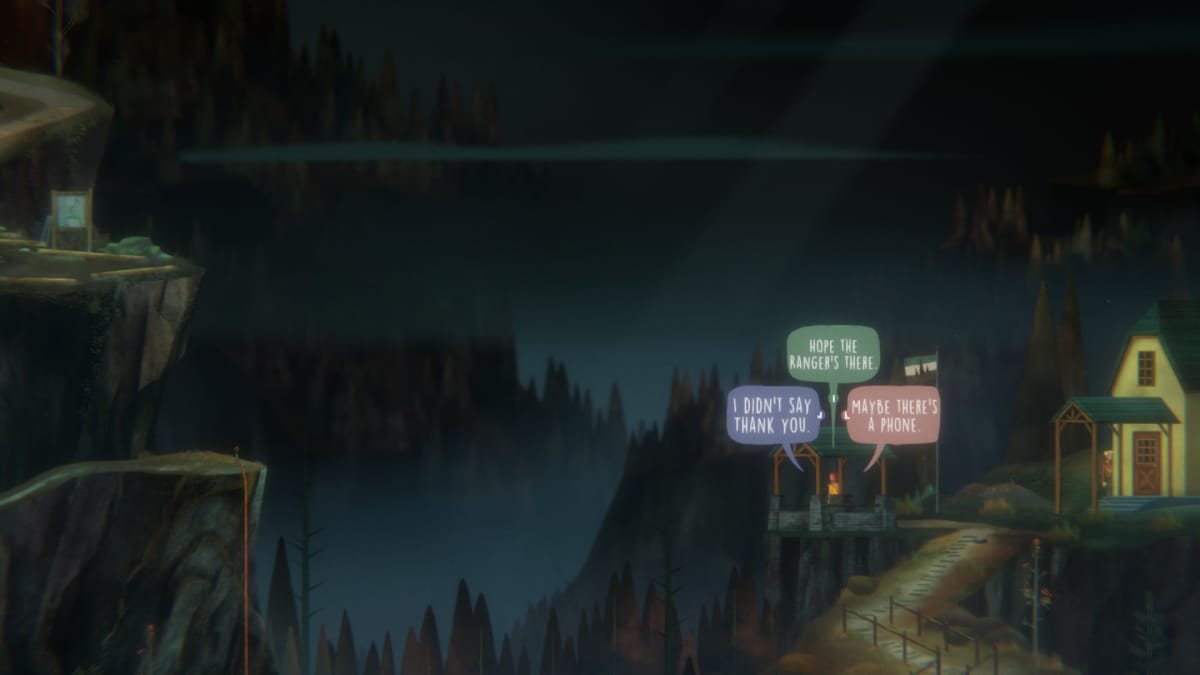
The art style of Lost Signals is gorgeous, with Riley and Jacob as 3D characters in a side-scrolling world. At certain points in the game, you’re able to stand just so that the camera pans and gives you a view of the gorgeous scenery of the Pacific Northwest, and you can almost forget the terror of whatever else is going on at the moment. Most of Camena, at least most of what we explore, seems to be woodlands and part of protected parkland, and the scenery for the entire thing is gorgeous, but moody and eerie at the same time. It’s unsettling, but you’re also sure it’s the sort of place you’d be eager to hike through in broad daylight.
It’s been seven years since Oxenfree came out, and at times I wasn’t sure we were going to even get a sequel at all, leaving the ultimate fate of Edwards Island unknown. Oxenfree II: Lost Signal's heartfelt writing, relatable protagonists, eerie horror elements, and fantastic dialogue system are so good that, in retrospect, it was all well worth the wait.
Oxenfree II: Lost Signals was reviewed on PC via Steam with a copy provided by the developer over the course of 7.5 hours of gameplay - all screenshots were taken during the process of review.
Review Summary
Pros
- Excellent Writing and Dialogue
- Riley Is a Deep, Relatable Protagonist
- Terrifying Ghostly Encounters
Cons
- No Quick Travel
Have a tip, or want to point out something we missed? Leave a Comment or e-mail us at tips@techraptor.net
